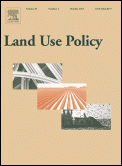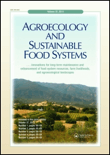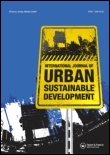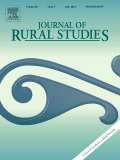
Global Sustainability
Scope & Guideline
Shaping Policies for a Greener Tomorrow
Introduction
Aims and Scopes
- Interdisciplinary Sustainability Research:
The journal encompasses a wide range of disciplines, integrating perspectives from environmental science, social sciences, economics, and policy studies to provide holistic insights into sustainability challenges. - Focus on Global Challenges:
Research published in this journal addresses significant global issues such as climate change, biodiversity loss, food security, and social equity, aiming to inform sustainable development agendas on an international scale. - Innovative Solutions and Frameworks:
The journal highlights transformative solutions and frameworks that can guide policymakers and practitioners in implementing sustainable practices across various sectors, including urban planning, agriculture, and corporate governance. - Engagement with Stakeholders:
Emphasizing the importance of stakeholder engagement, the journal promotes research that includes community participation and knowledge co-production to enhance the relevance and applicability of sustainability science. - Assessment and Evaluation of Policies:
The journal focuses on evaluating the effectiveness of sustainability policies and practices, assessing their impacts on social and environmental outcomes, and providing evidence-based recommendations.
Trending and Emerging
- Planetary Health and Systems Thinking:
Recent publications emphasize the interconnectedness of human health and environmental sustainability, advocating for planetary health systems that integrate health, ecology, and governance. - Corporate Responsibility and Sustainability:
There is a growing focus on corporate social responsibility, particularly in industries such as fashion and agriculture, exploring how businesses can contribute to sustainable practices and risk management. - Transdisciplinary Approaches:
Research increasingly highlights the importance of transdisciplinary collaboration, engaging diverse stakeholders to co-create knowledge and solutions for sustainability challenges. - Climate Justice and Equity:
Emerging themes include climate justice, emphasizing the social dimensions of climate action and the need to address inequities in climate impacts and responses. - Sustainable Urban Development:
The journal is increasingly addressing the challenges and opportunities of sustainable urban development, reflecting the growing importance of cities in achieving sustainability goals.
Declining or Waning
- Traditional Economic Models:
There has been a noticeable decline in the focus on traditional economic models in relation to sustainability, as the journal shifts towards more integrative and transdisciplinary approaches that consider social and ecological dimensions. - Sector-Specific Analyses:
Research that solely focuses on individual sectors without considering their interconnections and impacts on broader sustainability goals is becoming less common, as there is a growing recognition of the need for systemic approaches. - Short-Term Solutions:
The journal appears to be moving away from short-term, piecemeal solutions to sustainability issues, favoring long-term transformative strategies that address root causes and systemic challenges. - Local Case Studies in Isolation:
There is a declining emphasis on isolated local case studies that do not connect to global sustainability frameworks, as the journal increasingly seeks to position local actions within the context of global challenges. - Purely Theoretical Frameworks:
The journal's focus is shifting away from purely theoretical frameworks that lack empirical application, as there is a stronger demand for research that demonstrates practical applicability in real-world scenarios.
Similar Journals

Facets
Navigating the Multiverse of Scientific DiscoveryFacets is a prominent open-access journal published by Canadian Science Publishing, dedicated to the multidimensional exploration of scientific knowledge across various disciplines. With an ISSN of 2371-1671, this journal has established itself as a vital resource for researchers, professionals, and students alike since its transition to open access in 2016. Based in Ottawa, Canada, Facets enjoys a remarkable reputation, evidenced by its ranking in the top quartile (Q1) of multidisciplinary journals as of 2023, and its impressive Scopus ranking as #24 out of 171, positioning it in the 86th percentile. The journal aims to facilitate innovative research and foster collaborations by providing a platform for cutting-edge studies that address complex, interdisciplinary challenges. The focus on a broad scope ensures that diverse perspectives contribute to the ongoing conversation in the scientific community, making Facets an essential point of reference for those seeking to stay at the forefront of scientific research.

Lancet Planetary Health
Bridging disciplines to tackle planetary health challenges.Lancet Planetary Health is a distinguished, open-access journal published by Elsevier Science Ltd, focusing on critical intersections between global health and environmental sustainability. Launched in 2017 and located in the Netherlands, this journal has quickly established itself as a leading platform for innovative research, evidenced by its Q1 ranking across multiple categories in 2023 including Health Policy, Public Health, and Environmental and Occupational Health. With an impressive Scopus ranking, placing it in the top 1% of similar journals, Lancet Planetary Health aims to foster interdisciplinary conversation and collaboration among researchers, policymakers, and practitioners dedicated to addressing the health challenges posed by climate change and environmental degradation. The open access model not only enhances the visibility of published research but also promotes widespread dissemination of knowledge, making it an essential resource for anyone committed to advancing the field of planetary health.

Sustainability Science
Shaping the Future of Sustainability Through Collaborative ResearchSustainability Science, an esteemed journal published by SPRINGER JAPAN KK, serves as a pivotal platform for interdisciplinary research dedicated to sustainable development and environmental stewardship. With its ISSN 1862-4065 and E-ISSN 1862-4057, this journal has established itself as a leading voice in the realms of Ecology, Geography, Health Sociology, and Global Change, proudly holding a Q1 position across multiple categories as of 2023. Notably, it ranks exceptionally well within Scopus, with rankings such as #11 out of 371 in Health (Social Science) and #27 out of 1466 in Sociology and Political Science, underlining its high impact and relevance in pertinent research areas. The journal emphasizes the importance of integrating ecological science with social and policy dimensions, thus encouraging collaboration among researchers, practitioners, and policymakers alike. While it currently operates under traditional access models, its rigorous selection process and comprehensive peer-review procedures ensure that only the most reliable and significant research contributes to the discourse on sustainability, making it an invaluable resource for anyone committed to creating a sustainable future.

Problemy Ekorozwoju
Empowering Knowledge for a Sustainable FutureProblemy Ekorozwoju is a leading journal dedicated to the interdisciplinary fields of geography, management, and environmental sustainability, published by Politechnika Lubelska in Poland. With its ISSN 1895-6912 and E-ISSN 2080-1971, this journal serves as a vital platform for disseminating high-quality research that addresses contemporary challenges in sustainable development and ecological progress. As of 2023, it holds a commendable position in the Q3 quartile for categories including Geography, Planning and Development, Management, Monitoring, Policy and Law, and Renewable Energy, Sustainability, and the Environment. Researchers and professionals in these fields can benefit from the journal’s commitment to rigorous peer review and open exchange of knowledge. With coverage spanning from 2008 to 2024, Problemy Ekorozwoju is vital for those aiming to explore innovative solutions and policy frameworks that promote environmental stewardship and sustainable practices across various sectors.

Ciudad y Territorio-Estudios Territoriales-CyTET
Bridging Theory and Practice in Urban StudiesCiudad y Territorio-Estudios Territoriales-CyTET, published by the MINISTERIO FOMENTO, CENTRO PUBLICACIONES, is a premier journal dedicated to the interdisciplinary exploration of urban and regional studies. With an ISSN of 1133-4762, this Spanish journal serves as a vital platform for researchers and practitioners interested in the dynamics of geography, planning, and development. Recognized in the Q2 quartile for both Geography, Planning and Development and Urban Studies for 2023, CyTET represents a significant contribution to academic discourse, ranked at 145th in Urban Studies and 542nd in Geography, Planning and Development within the Scopus database. Notably, the journal’s converged issue years from 2014 to 2024 emphasize its ongoing commitment to staying current with the rapidly evolving challenges and innovations in urban environments. Although not Open Access, CyTET provides invaluable insights and research findings that are critical for professionals, scholars, and students aiming to enhance their understanding and impact in the realm of territorial studies.

Environmental Policy and Governance
Fostering Interdisciplinary Dialogue on Environmental ChallengesEnvironmental Policy and Governance is a premier academic journal published by WILEY PERIODICALS, INC, based in the United Kingdom, dedicated to advancing the understanding and implementation of environmental policy across various governance frameworks. With an ISSN of 1756-932X and E-ISSN 1756-9338, this journal spans from 2009 to 2024, reflecting a rich history of contributions to the field. Renowned for its rigorous scholarship, it holds a prestigious Q1 ranking in both Geography, Planning and Development and Management, Monitoring, Policy and Law, positioning it in the top tier of academic discourse. The journal has made significant strides in promoting interdisciplinary research, fostering dialogue among policymakers, scholars, and practitioners, and addressing pressing global environmental challenges. Although currently not an Open Access publication, its high impact factor underlines its relevance and authority, making it an essential resource for researchers, professionals, and students eager to explore innovative solutions and best practices in environmental governance.

LAND USE POLICY
Navigating Complexities in Land Use ManagementLAND USE POLICY, published by ELSEVIER SCI LTD, is a premier academic journal dedicated to advancing the study of land use issues and policies, with a particular focus on sustainable management and conservation practices. Since its inception in 1984, this journal has established itself as an influential platform in the fields of Forestry, Geography, Planning and Development, and Environmental Science, consistently achieving a Q1 category ranking across various disciplines. With an impressive impact factor and recognition as a top-tier source (e.g., ranking #18/821 in Geography and Planning), it serves as a critical resource for researchers, practitioners, and policy-makers looking to address complex land use challenges. Although it does not offer open access, the journal's articles are widely accessible through institutional subscriptions, enhancing its reach. Researchers and students can find valuable insights into innovative policies and methodologies that promote sustainable land management, making LAND USE POLICY essential reading for anyone engaged in environmental studies and policy development.

Agroecology and Sustainable Food Systems
Empowering change through agroecological knowledge.Agroecology and Sustainable Food Systems, published by Taylor & Francis Inc, is a premier academic journal dedicated to advancing the science of agroecology and its applications in sustainable food systems. With an impact factor that reflects its significant influence in the field, this journal serves as a vital resource for researchers, industry professionals, and students engaged in sustainability, agriculture, and environmental studies. As of 2023, it proudly holds a Q1 ranking in Agronomy and Crop Science, as well as Q2 rankings in Development and Renewable Energy, Sustainability, and the Environment categories. Covering a broad spectrum of topics, it not only shares peer-reviewed research but also encourages discourse on innovative practices and policies that enhance food security and ecological balance. Available for access through various options including Open Access, the journal's commitment to knowledge dissemination is further underscored by its substantial rankings on Scopus, with notable percentiles across multiple disciplines. By focusing on agroecological principles and their socio-economic implications, Agroecology and Sustainable Food Systems is essential for those looking to stimulate meaningful change in agricultural practices and sustainability initiatives worldwide.

International Journal of Urban Sustainable Development
Shaping policies for a greener, smarter urban landscape.The International Journal of Urban Sustainable Development is a premier peer-reviewed journal published by Taylor & Francis Ltd, dedicated to advancing knowledge in the field of urban sustainability. With an ISSN of 1946-3138 and an E-ISSN of 1946-3146, this journal has gained recognition for its high-quality research, attaining Q1 status in multiple categories including Development, Geography, Planning and Development, and Urban Studies, per the 2023 category quartiles. Open Access since 2022, the journal ensures that groundbreaking research is widely accessible to scholars, practitioners, and policy-makers alike, enhancing its reach and impact. Operating from the United Kingdom, it focuses on a diverse array of topics related to urban environments and sustainable practices, supporting innovation and policy development. As a result, the journal holds significant placements in Scopus rankings, notably ranking #62 in Urban Studies, underscoring its pivotal role in shaping the future of sustainable urban development globally.

Journal of Rural Studies
Unveiling Insights into Rural ChallengesWelcome to the Journal of Rural Studies, a premier peer-reviewed publication dedicated to advancing the field of rural research. Published by PERGAMON-ELSEVIER SCIENCE LTD, this esteemed journal has been a cornerstone of scholarly discourse since its inception in 1985 and continues to evolve through 2024. With an impressive impact factor and categorization in the Q1 tier across various fields, including Development, Forestry, Geography, Planning and Development, and Sociology and Political Science, the journal is among the elite voices in rural studies. Researchers, professionals, and students alike will find invaluable insights within its pages, supported by rigorous empirical research and theoretical explorations that address the complexities of rural life and its myriad challenges. While it currently does not offer open access, the subscription model ensures a broad dissemination of knowledge, fostering collaboration and innovation within the academic community. With a robust Scopus ranking that places it in the top percentiles across multiple social sciences, the Journal of Rural Studies remains an essential resource for those dedicated to understanding and improving rural environments worldwide.